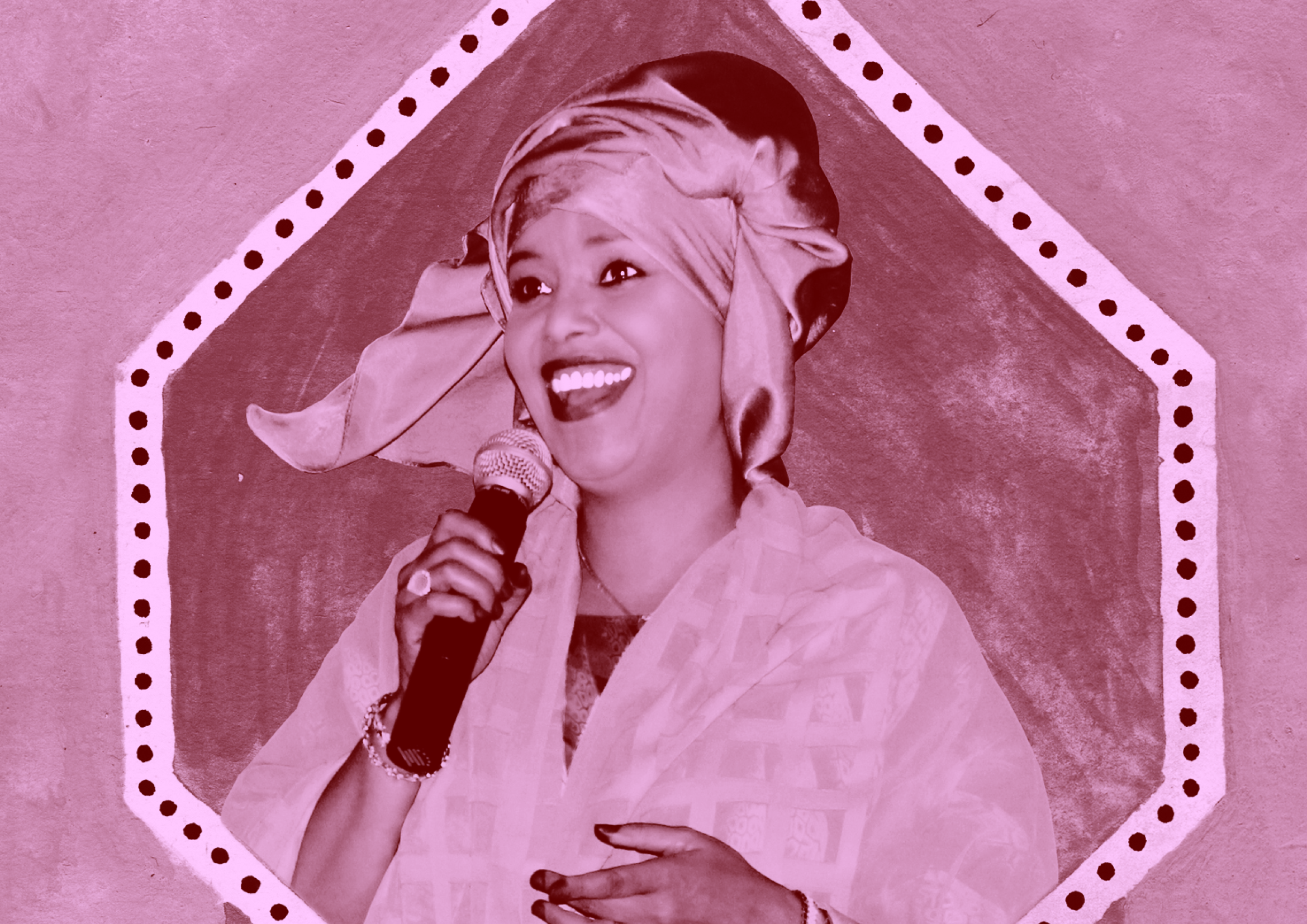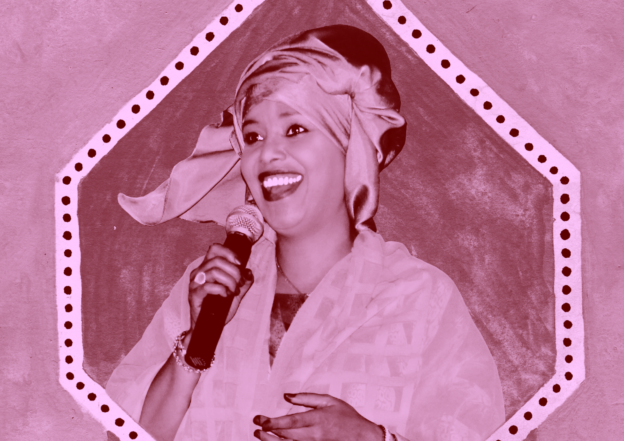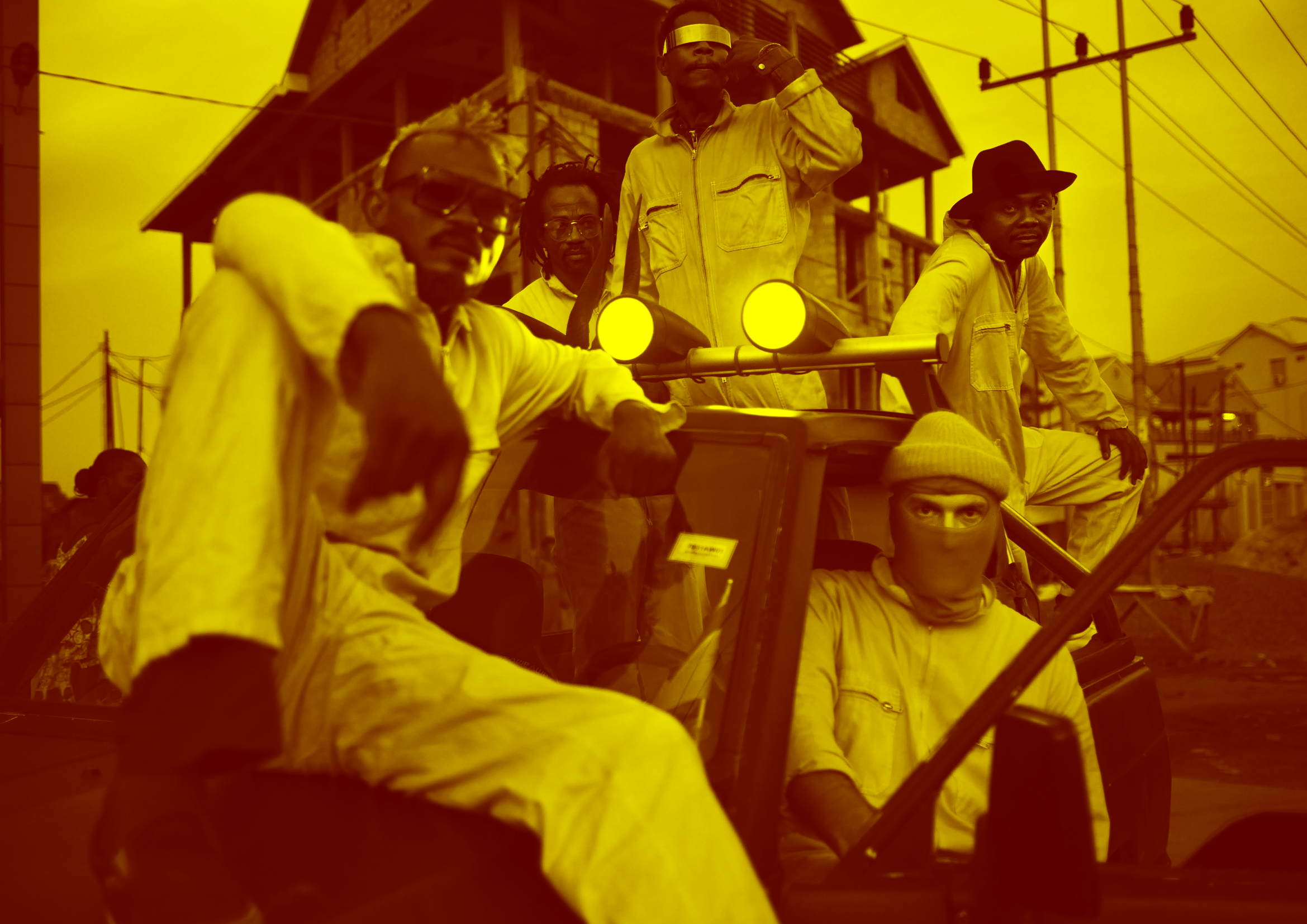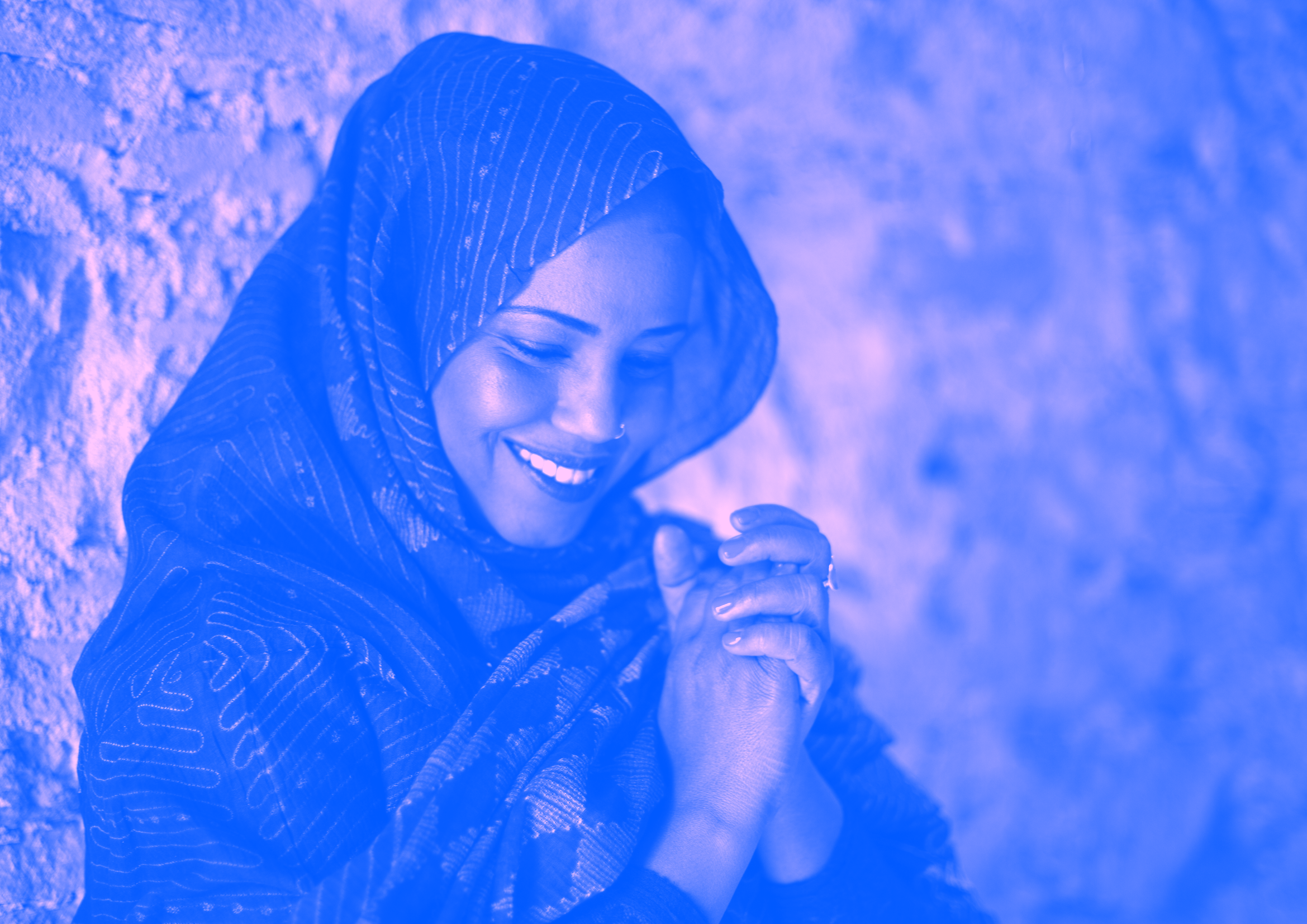
When the Somali civil war broke out, Sahra Halgan was a teenager with dreams of being a singer. She soon found herself working as a singing nurse for the rebels fighting for Somaliland’s liberation from Siaad Barre’s regime. She arrived in Lyon, France as a political refugee in 1992, where she worked in a café and as a musician. Today, she is back in Somaliland where she runs a center for musicians and poets. Considered an icon to many in her home region, her unique, clear voice with its powerful vibrato is synonymous with the freedom struggle. But instead of resting on her laurels, Sahra Halgan wants to use her music to spread the word about Somaliland—a self-proclaimed state not recognized internationally. She still has strong ties to Europe, not least through the two remaining members of her trio, Aymeric Krol and Mael Saletes. Together, they create a global Somaliland music with seriously funky drums and electric guitar.



